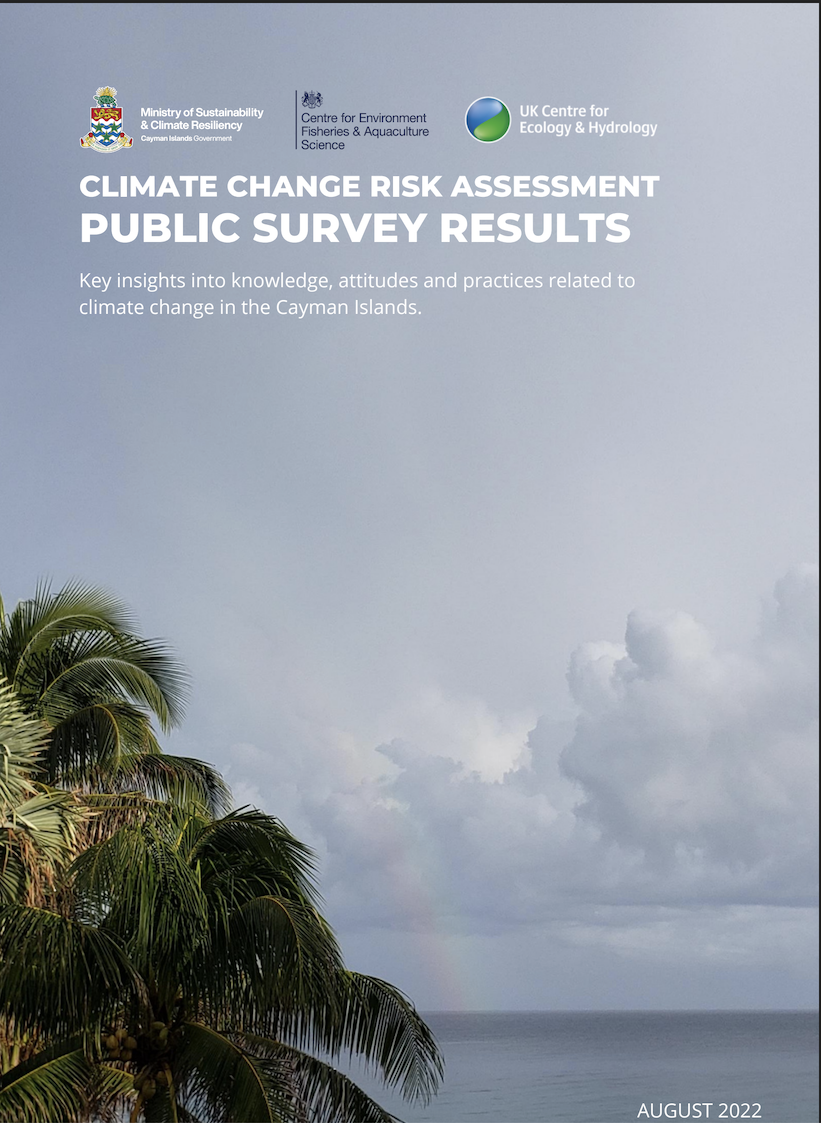Cayman: Climate Change Survey Results

August 17, 2022 | By: Hannah Reid
Climate Change Risk Assessment Public Survey_Aug22.pdf
According to the results of a recent survey facilitated by the Ministry of Sustainability & Climate Resiliency, most local residents consider climate change ‘very’ or ‘extremely important’ to them personally, and are ‘very’ or ‘extremely concerned’ that climate change will impact them in their lifetimes.
Designed to evaluate and measure local climate change knowledge, attitudes and practices, the anonymous, digital survey was hosted for a four-week period between May to June 2022 as part of the ongoing Climate Change Risk Assessment for our country.
Ministry Chief Officer Jennifer Ahearn said the survey received more than 1,000 responses before it closed, confirming a high level of awareness and concern about climate change in the Cayman Islands community.
“The final number of responses far surpassed our goal for a nationally representative sample of approximately 400 responses and mirrored the level of participation seen in similar surveys in European countries. I would like to thank everyone who took the time to complete the survey – your insights will be incredibly valuable to our efforts to update the 2011 Draft Climate Change Policy and consider long-term public awareness and education initiatives related to climate change in our community,” Ahearn said.
The full survey report is available here.
Work to Update Climate Change Policy Ongoing
The climate change risk assessment being undertaken by the Cayman Islands Government in partnership with the Centre for Environment Fisheries & Aquaculture Science (Cefas) and the UK Centre for Ecology and Hydrology (UKCEH) is a critical element of ongoing efforts to review and update the Cayman Islands’ Climate Change Policy.
The climate change risk stakeholder group includes approximately 60 representatives from the public and private sectors, non-governmental agencies and academia. Over the course of a two-day workshop facilitated by the visiting Cefas and UKCEH scientists in May 2022, this diverse group of local subject matter experts reviewed a draft ‘long-list’ of 52 key risks and opportunities related to biodiversity and natural habitats, the economy and society which had been categorised in terms of the level of agreement among researchers, as well as the level of confidence in the evidence. The local subject matter experts then scored the risks according to proximity (urgency) and magnitude of impact (seriousness).
While the full climate change risk assessment report is expected in September 2022, a technical working group spearheaded by the Ministry of Sustainability & Climate Resiliency is progressing a parallel workplan for updating the 2011 Draft Climate Change Policy by the end of 2022.
“In an effort to have an updated policy to Cabinet by the end of the year, the technical working group recently presented Caucus with our ambitious schedule of stakeholder consultation and public meetings. Working closely with the climate change risk assessment stakeholder group, our aim is to have a working draft finalised for public review and input by October 2022,” Ahearn said. “I know the level of ongoing projects can sometimes feel overwhelming but public participation is essential to developing inclusive, holistic policy and we hope to see a high level of turnout at the public meetings once those dates are announced next month.”





